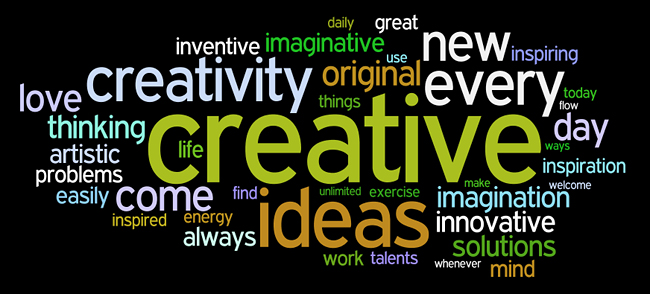The Humility Deficit
Last time I posted here, I made the argument that readers should not be too picky. Today I will make the argument that writers – and, more broadly, “creators” – should not be jerks. Turnabout is fair play, and anyway, I read this article, “The Most Successful Creative People Constantly Say ‘No’. ” It’s not  the saying no that bothers me, or even the constantly saying no. It’s how these successful, creative people say no.
the saying no that bothers me, or even the constantly saying no. It’s how these successful, creative people say no.
The author cites several responses a Hungarian professor received from people whom he had asked to participate in a study. He cites them as proof that saying no is a habit of highly successful people, and not (which would be more rational) that humility is evidently in deficit among highly successful people. Here they are:
Secretary to novelist Saul Bellow: “Mr Bellow informed me that he remains creative in the second half of life, at least in part, because he does not allow himself to be a part of other people’s ‘studies.’ ”
It’s not even a study, people. It’s a “study”.
Management writer Peter Drucker: “One of the secrets of productivity (in which I believe whereas I do not believe in creativity) is to have a VERY BIG waste paper basket to take care of ALL invitations such as yours — productivity in my experience consists of NOT doing anything that helps the work of other people but to spend all one’s time on the work the Good Lord has fitted one to do, and to do well.”
It is probably the literary equivalent of being overdressed to respond to this with a quotation from Dickens, but it does come to mind: “Mankind was my business. The common welfare was my business; charity, mercy, forbearance, and benevolence were, all, my business.”
Secretary to composer György Ligeti: “He is creative and, because of this, totally overworked. Therefore, the very reason you wish to study his creative process is also the reason why he (unfortunately) does not have time to help you in this study. He would also like to add that he cannot answer your letter personally because he is trying desperately to finish a Violin Concerto which will be premiered in the Fall.”
I think it would be well to remember that countless millions of people are totally overworked, and for nobler reasons than that they are creative. The world can do without another Violin Concerto. It cannot do without food – which is what, essentially, most people work for.
The rest of the article continues the intimation, found in these quotations, that there is something especially important about  creativity – and, it follows, about creative people. “Time,” our author states, “is the raw material of creation.” Time is far more than that; time is the raw material of life, and the time of creative people is no more valuable than that of other mortals.
creativity – and, it follows, about creative people. “Time,” our author states, “is the raw material of creation.” Time is far more than that; time is the raw material of life, and the time of creative people is no more valuable than that of other mortals.
“We” – meaning creators – “do not have enough time as it is.” True – and not because we (you, they) are creators. It’s true because no one has enough time.
Or maybe everyone has just enough time. I am amenable to that idea, too. What I am not amenable to is the idea that some people – special people, creative people – are particularly short on time, and this is why they throw other people’s invitations into the wastebasket, and tell them so.
Creativity is not a virtue, nor is it elevated above a thousand other good and honorable human activities. Creative people have the right to say no, but it’s only the same right everyone else has. Nor is a haughty or high-handed No, let alone a rude one, at all to be excused. We all live under the same rules, and one of the most basic of those rules is: Don’t be a jerk.












































I read this article, ” ”
*Methinks your link is MIA. But I enjoy your air quotes about the “study.” 😉 And if creators don’t have enough time, how does such creator explain away a writer’s/composer’s block?
It was. It’s been corralled back into the line of duty. 🙂
Oh my gosh, really? I hope I never get like that.
Parker, the only way we’ll become like that is if we ignore the thrust of this article; creatives are no better or worse than non-creatives. We are all just people, with the same need for a Savior. As long as we see ourselves as God sees us, we can rest in His care for our emotional and spiritual health—which having an inflated sense of our importance certainly contradicts.
Becky
Yes. Some people …
Love this article, Shannon.
Becky
Thanks, Becky. 🙂
There’s a very big need for balance for everyone, not just creatives. My dad works in computers, and has very little spare time. I am not doing art or writing as a career, but hope to eventually. I’ve been trying to learn from my Dad’s situation and plan how I might handle mine in the future. The thing artists need to remember is that although it is good to gift people art sometimes, it isn’t good to get sucked into doing too much of it for free or cheap. It isn’t that they think they are better than others, it’s just that they need to eat too and I know that by the time I stress myself doing tons of free work for others, I might as well just work on my own projects. At least then I could publish the work and make some money to support myself with, rather than trying to cater to people that demand I work for them yet don’t value my art enough to pay for it. There is value in saying no in a polite manner. I’ve had people ask me to do art for their projects that wouldn’t end up paying, or at least not for a long time. I already had enough stress on my plate without taking more work for no pay. I had to turn those people down nicely, thank them for their offer and maybe explain that I can’t take unpaid work right now. If I open up for commissions, I will only take about five people at once, that way I don’t have to live in an unnecessarily overwhelmed state. Many times stresses and a lack of productivity come down to the ways we manage our lives and the unnecessary requirements we put on ourselves.
Autumn, I think you have a good point. I think there might be different standards based on where a person is. Sometimes it’s good to give work away in order to promote. Sometimes it’s good as a way to build a platform. Sometimes it’s good as a way to pay forward what someone gave to you. But at some point, a person does have to think, should I write this story for ten copies of the book and no royalties when I could write something I’ll sell?
However, when someone becomes rich and famous and secure in their position and financial situation, they should be willing to help others. Especially when the help is simply filling out a poll.
Becky
You’re absolutely right, and like you imply unnecessary requirements are often a direct result of trying to help others. And for Christians, there will always be a tension in trying to identify when saying yes is actually opening the door to spiritual harm for everyone involved.
I don’t think saying no to people who want you to work for free (however naively) is the same as saying no to anyone who wants your help or opinion or fellowship for other reasons. I think Shannon’s post here is more about the latter.
The death-spiral reveals itself when your parents ask you to help around the house or your friends want to hang out with you, and you grumpily reject them because you’re working on a project you don’t even like for some friend or acquaintance for whom you agreed to work for free or for some small purported benefit.
The true darkness of the situation comes from the fact that you probably agreed to work for free out of a combination of sympathy for your friend or a genuine understanding of your own privilege. Some people are soldiers, and risk their lives as part of their everyday jobs in order to allow you to live in a free country. Some people are missionaries and willingly choose poverty, social stigma, and hardship because they genuinely believe that people need to hear the Gospel to be saved from everlasting conscious torment. Some people are blue-collar laborers whose work eventually destroys their physical and mental well-being. Some people are retail workers who are controlled by public consumerism and work in disrespected jobs when other people enjoy leisure time and family gatherings. Maybe your friend has lead a particularly virtuous Christian life and deserves to have their unexpressed vision created for them because they have suppressed their own desires for others for so long.
So you agree, and you try to make it a priority. You put it before things that are practically more important, and the anxiety about all the things you should be doing overwhelms you. You feel like you can’t put full effort into making money or doing things you genuinely love until you get this gift-project out of the way, but you can’t get the gift-project out of the way because you have to try to scrape by to support it. As a result, your progress is slow, and your friend will never know how hard you’re working on it or how tumultuous the presence of this project is in your life. Other people don’t understand why your is so stagnant; you look lazy and selfish being so wrapped up in your art.
You feel like you can’t make any more commitments until you finish this gift-project, and you’re afraid that if you spend time with people they’ll ask for similar commitments. You don’t enjoy saying no and you won’t agree even to good opportunities that you would have loved to be involved in under other circumstances, so you avoid people to the point of developing a personality disorder. You begin to resent your friend, even though your friend never understood what he or she was asking and honestly thought that this project would allow you to blossom as a creator and find your voice. What was intended for good by all parties because a nightmare, and grace is subverted. Hell wins.
We need to be able to let go while still keeping our promises. We need to not care about failing people while still trying not to fail them, and we need to do what we really love and believe in or we will become miserable insane wretches.
There is value in saying no in a polite manner.
Absolutely. The issue I am hoping to address is not the saying no (everyone has to, sometime), but the why, and how, of it.
I love the quote from Dickens. And while we can never judge the intentions of another person’s heart, we need to keep a close watch upon our own. I know I do. Sometimes I’ve been obedient, sometimes I’ve been a jerk. This is an individual thing, subject to the moment and the will and Spirit of God working in us. Excellent post, Shannon.
Thanks! It is an individual thing; there is no absolute rule for what/how much to say no or yes to.
I wonder if you can put the link to the article in the comments, as I’d like to see it and maybe get a better idea of the context both of the study and the responses.
I edited the link back into the article, where it was supposed to be. Copy and paste failed me …
Thanks. The article itself was still uninformative, though. It didn’t give the researcher’s name, or the time when the study was done, or any source for the quotes.
The article is an excerpt from a book, How Fly A Horse. Maybe the information is there.
Maybe so, that’s a fair point. Guess I was curious about the nature of the research that was wanting to be done. I can kind of understand people getting huffy if it seemed like they were being treated like bugs under a microscope.